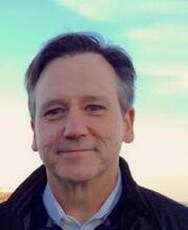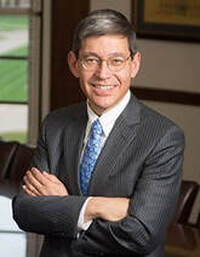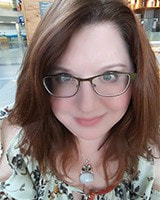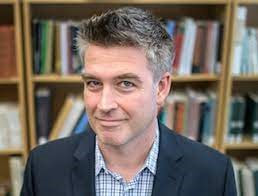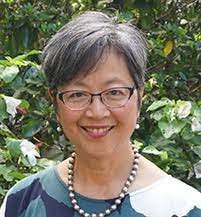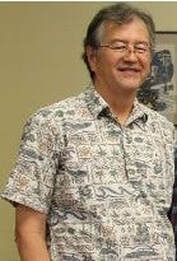Twenty-seventh Annual Japan Studies Association Conference
January 6-8, 2022 (virtual online)
Proposal submission deadline: November 15, 2021
Established in San Diego in the spring of 1994, the JSA has assisted its members – primarily teachers from American two- and four-year colleges and universities – to acquire first-hand knowledge about Japan and infuse it into the curriculum of their home institutions. Through workshops and study-tours, and the professional networking they enable, JSA’s members have been inspired to engage in curriculum development, design study-abroad programs, and initiate Japan-related or comparative research, an outlet for which they have found both in the organization’s Japan Studies Association Journal and its annual national conference.
JSA’s January 6-8, 2022 Conference will be virtual (online) with a variety of panels and individual papers on Japan’s literary and cultural traditions, historical and economic developments, and socio-political and religious characteristics. The Conference also includes roundtables and presentations on the themes of Hokkaido’s political history; indigenous Ainu identity, culture, and activism, and the film Ainu Mosir; and teaching innovations to incorporate material springing from a study of Hokkaido themes into the college curriculum and an array of college courses.
JSA’s January 6-8, 2022 Conference will be virtual (online) with a variety of panels and individual papers on Japan’s literary and cultural traditions, historical and economic developments, and socio-political and religious characteristics. The Conference also includes roundtables and presentations on the themes of Hokkaido’s political history; indigenous Ainu identity, culture, and activism, and the film Ainu Mosir; and teaching innovations to incorporate material springing from a study of Hokkaido themes into the college curriculum and an array of college courses.
Keynote Presentations
Thursday, January 6, 2022 (webinar format)
Plenary Lecture: “Placing the Ainu in Japanese History”
Plenary Lecture: “Placing the Ainu in Japanese History”
|
David L. Howell
Robert K. and Dale J. Weary Professor of Japanese History, Harvard University David L. Howell is Professor of Japanese History at Harvard University and Editor of the Harvard Journal of Asiatic Studies. He received his B.A. from the University of Hawai’i at Hilo and Ph.D. in History from Princeton University. He taught at the University of Texas at Austin and Princeton before joining the Harvard faculty in 2010. Howell is the author of Capitalism from Within: Economy, Society, and the State in a Japanese Fishery (1995) and Geographies of Identity in Nineteenth-Century Japan (2005) as well |
as numerous articles. Professor Howell is particularly interested in the ways changing political and economic institutions affected the lives and livelihoods of ordinary people over the course of the nineteenth century. He is also a co-editor of a new edition of the Cambridge History of Japan, which is scheduled for publication in three volumes in 2020.
Friday, January 7, 2022 (webinar format)
Plenary Roundtable: The Future of Japan Studies
Plenary Roundtable: The Future of Japan Studies
|
William Tsutsui,
President, CEO, and Professor of History, Ottawa University Moderator A specialist in the environmental, economic, and cultural history of twentieth-century Japan, he is the author or editor of eight books, including Japanese Popular Culture and Globalization and Godzilla on My Mind. He previously taught at the University of Kansas, Southern Methodist University, and Hendrix College. He current serves on the boards of the Association for Asian Studies and the US-Japan Council, and was appointed in 2020 to the Japan-United States Friendship Commission. |
PANELISTS:
Mindy Landeck, Associate Professor of East Asian Studies at Austin College, a private liberal arts college north of Dallas. An avid proponent of Japanese studies outreach and public-facing scholarship, Mindy has partnered extensively with local libraries and businesses to offer educational programs on Japan to the public, and since 2003 has collaborated with entities such as the National Consortium for Teaching about Asia on curriculum creation and professional development initiatives for in-service primary and secondary educators. She is eager to bring her perspective as a language and area studies educator in the SLAC (small liberal arts college) environment to the roundtable.
Morgan Pitelka, Chair of the Department of Asian and Middle Eastern Studies and Professor of History, UNC-Chapel Hill. He taught at Occidental College (2002-2010). His scholarship focuses on the history of late medieval and early modern Japan, with an emphasis on the samurai, tea culture, ceramics, cities, and material culture. His newest book, Reading Medieval Ruins: Urban Life and Destruction in Sixteenth-Century Japan, is forthcoming in 2022 from Cambridge University Press. He serves as the coeditor of the Journal of Japanese Studies and is on the Japan Foundation American Advisory Committee.
Christine R. Yano, Professor of Anthropology at the University of Hawai`i, has conducted research on Japan and Japanese Americans with a focus on popular culture. In 2020-2021 she served as the President of the Association for Asian Studies. She has served as Chair of the American Advisory Committee to Japan Foundation since 2018. Her publications include Tears of Longing: Nostalgia and the Nation in Japanese Popular Song (Harvard, 2002), Airborne Dreams: “Nisei” Stewardesses and Pan American World Airways (Duke, 2011), and Pink Globalization: Hello Kitty and its Trek Across the Pacific (Duke, 2013). Her latest book is Straight A’s: Asian American College Students in Their Own Words with Neal Akatsuka (Duke, 2018).
Mindy Landeck, Associate Professor of East Asian Studies at Austin College, a private liberal arts college north of Dallas. An avid proponent of Japanese studies outreach and public-facing scholarship, Mindy has partnered extensively with local libraries and businesses to offer educational programs on Japan to the public, and since 2003 has collaborated with entities such as the National Consortium for Teaching about Asia on curriculum creation and professional development initiatives for in-service primary and secondary educators. She is eager to bring her perspective as a language and area studies educator in the SLAC (small liberal arts college) environment to the roundtable.
Morgan Pitelka, Chair of the Department of Asian and Middle Eastern Studies and Professor of History, UNC-Chapel Hill. He taught at Occidental College (2002-2010). His scholarship focuses on the history of late medieval and early modern Japan, with an emphasis on the samurai, tea culture, ceramics, cities, and material culture. His newest book, Reading Medieval Ruins: Urban Life and Destruction in Sixteenth-Century Japan, is forthcoming in 2022 from Cambridge University Press. He serves as the coeditor of the Journal of Japanese Studies and is on the Japan Foundation American Advisory Committee.
Christine R. Yano, Professor of Anthropology at the University of Hawai`i, has conducted research on Japan and Japanese Americans with a focus on popular culture. In 2020-2021 she served as the President of the Association for Asian Studies. She has served as Chair of the American Advisory Committee to Japan Foundation since 2018. Her publications include Tears of Longing: Nostalgia and the Nation in Japanese Popular Song (Harvard, 2002), Airborne Dreams: “Nisei” Stewardesses and Pan American World Airways (Duke, 2011), and Pink Globalization: Hello Kitty and its Trek Across the Pacific (Duke, 2013). Her latest book is Straight A’s: Asian American College Students in Their Own Words with Neal Akatsuka (Duke, 2018).
Saturday, January 8, 2022 (webinar format)
“The Colonization of the Saru River Valley, Hokkaido:
Notes on a Virtual Landscape”
“The Colonization of the Saru River Valley, Hokkaido:
Notes on a Virtual Landscape”
|
Lonny Carlile
Associate Professor, Asian Studies Department University of Hawai'i at Manoa Lonny Carlile, Associate Professor, Asian Studies Department, University of Hawaii, (Ph.D. University of California Berkley) has most recently been director of UHM’s Center for Japanese Studies, and the principal investigator for a three-year Japan Foundation-funded project for advancing intellectual exchanges with Japanese Studies centers in Southeast Asia. His work and publications span a number of areas in interdisciplinary Japanese Studies. Dr. Carlile’s leadership has been crucial to JSA’s holding workshops in Fukuoka & Nagasaki (2008), Hiroshima & Nagasaki (2015), and Okinawa (2017). His current research focuses on the political economic history of Okinawa and Hokkaido. |
Become a Japan Studies Association Member!
If you have registered and paid for the January 2022 JSA Annual Conference, your JSA Membership Fee of $45 for 2022 is included! Thank you!
Why to join the Japan Studies Association as a JSA Member?
1. Membership supports JSA’s goals!
3. Membership is one indicator of JSA’s success in meeting its goals when we apply to our funders such as the Japan Foundation and U.S. Department of Education Centers for East Asian Studies. As a JSA member you will receive timely information about workshop, webinar and grant-funded opportunities.
4. We want to give you access to the terrific speakers and panelists at the Jan. 6, 7, 8, 2022 Conference. With a 2022 Membership fee of $45, you can register for the JSA Conference for an extra amount of $50 for part-time, retired, student, unemployed or independent scholars; or $80 for full-time employees. The combined rates equal the Early Bird Conference rates of $98 or $125. This offer is open until Jan. 2, 2022, but please register as soon as possible.
Why to join the Japan Studies Association as a JSA Member?
1. Membership supports JSA’s goals!
- To foster a deeper understanding of Japanese society and culture for all who are interested,
- To build a nation-wide network of U.S. educators dedicated to enhancing the undergraduate college curriculum with study of Japan,
- To support community college, four-year, and university faculty without established Asian Studies Programs,
- To increase first-hand knowledge of Japan through designing workshops throughout Japan,
- To offer annual conferences, workshops, and webinars sharing research in a variety of fields and disciplines.
3. Membership is one indicator of JSA’s success in meeting its goals when we apply to our funders such as the Japan Foundation and U.S. Department of Education Centers for East Asian Studies. As a JSA member you will receive timely information about workshop, webinar and grant-funded opportunities.
4. We want to give you access to the terrific speakers and panelists at the Jan. 6, 7, 8, 2022 Conference. With a 2022 Membership fee of $45, you can register for the JSA Conference for an extra amount of $50 for part-time, retired, student, unemployed or independent scholars; or $80 for full-time employees. The combined rates equal the Early Bird Conference rates of $98 or $125. This offer is open until Jan. 2, 2022, but please register as soon as possible.
Below is a link to the Conference Registration form, where you have the option of paying the Membership fee if you do not wish to or cannot attend the Conference.
|
Once the registration form has been submitted, one will be redirected automatically to the payment portal.
|
For further information, please contact:
Prof. Stacia Bensyl, JSA Treasurer (click to email),
Andrea Stover, 2022 Conference Program Chair (click to email), or
Fay Beauchamp, JSA Vice President for Special Projects (click to email).
Prof. Stacia Bensyl, JSA Treasurer (click to email),
Andrea Stover, 2022 Conference Program Chair (click to email), or
Fay Beauchamp, JSA Vice President for Special Projects (click to email).
Image Credit: "Flowers" by Migishi Kotaro, Mima, fragment; Sapporo; photo courtesy Maggie Ivanova (JSA)

